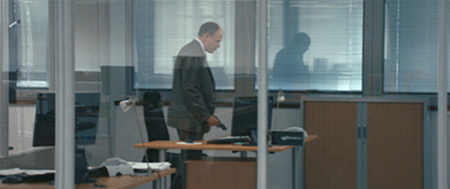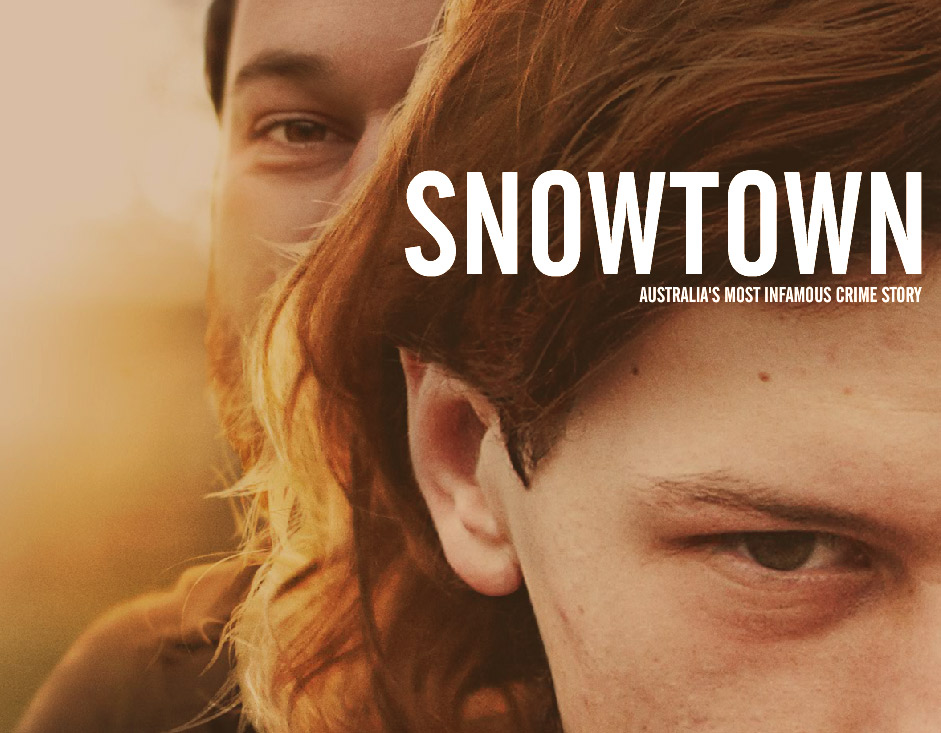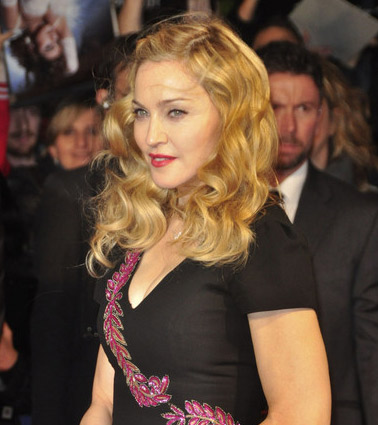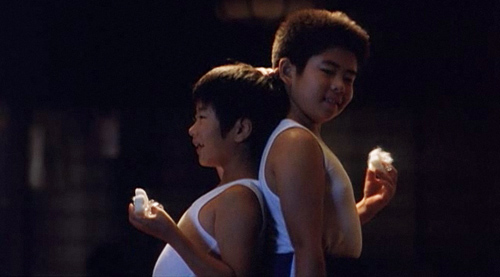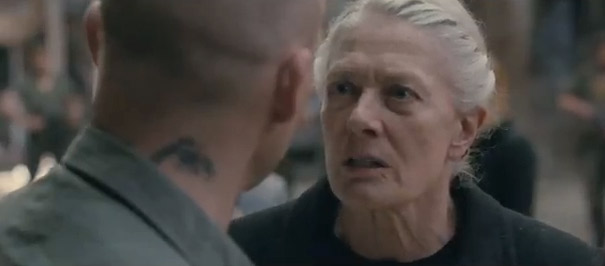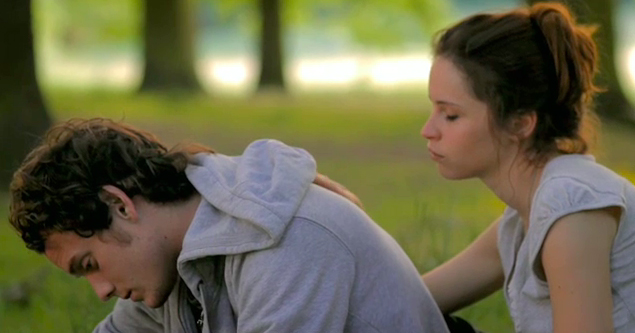London: "The Deep Blue Sea"
 Friday, October 28, 2011 at 11:46PM
Friday, October 28, 2011 at 11:46PM David here with one last report from the London Film Festival. Master British filmmaker Terence Davies provided a suitably British closing film, with Rachel Weisz lost in The Deep Blue Sea...

"Caught between the devil and the deep blue sea," Hester Collyer (Rachel Weisz) remarks at one point, naming the title of Terence Davies' latest feature, an adaptation of a Terence Rattigan play. It's Hester's voice that opens the film, too, disembodied over the dark blue background of the credits, reading a suicide note to her lover, Freddie Page (Tom Hiddleston of Thor fame). Hester is drowning in the deep blue sea of her own adoration, because Freddie's love isn't strong enough to reciprocate and pull her back to the surface.
The Deep Blue Sea betrays its theatrical origins from the first shot, panning smoothly across the front of a row of houses, the edges of the frame misty as though the smoke machines have been humming for hours. Davies has never been one to shy away from formalistic filmmaking, though, and like his best work, this film finds emotional power in and despite of the thoroughly artificial surface, which cracks itself between theatrical mannerisms and the sort of dissolution of temporality that dominated Davies' feature debut Distant Voices, Still Lives. The couple's flat houses much of the action, lit with a curiously indistinct glow through the windows, and the dialogue, particularly Hester's verbalisation of her feelings, is more narrational than conversational. But only minutes in, her memories spin, and black dissolves glide through her memories with a ghostly implacability.

As we meet her, Hester is trying to commit suicide - an indication that her story is not set to be a cheerful one. Handy with the sort of observational intimacy he practiced in Distant Voices and The House of Mirth, Davies again tells a deeply personal story without giving his filmmaking over to a singular point of view. It's due to Weisz's superb performance - besting her Oscar-winning work in The Constant Gardener - that we understand the moments of worldly perspective, from every mention of the war to the words of her landlady Mrs. Elton (Ann Mitchell), are Hester's own realisations of how selfish and narcissitic her dramatic emotions are. Despite the stilted dialogue, Weisz's is a very physical performance, the overwhelming nature of Hester's love and her attempts to quash it apparent in the cadences of her voice and the limits she puts on her movements.
The Deep Blue Sea is often too mannered, too ponderous, and Davies' technical mastery of the camera has the faint scent of pomposity to it. The pitch of Weisz' vivid passion is never as apparent as it needs to be in this environment; a breathless swoop of the camera onto her face is notable for its alertness, a crack in the fusty air around her. But finally, though rooted in British history (as the final shot insists), this is an irrefutably personal story in a world that emphasised the communal. Hester, unfamiliar with the song the patriotic drinkers around her sing, softly sings the chorus only to Freddie, shifting the words into her own narrative. Selfish, but after all, her passion is just a drop in the deep blue sea. (B)
 London,
London,  Rachel Weisz,
Rachel Weisz,  Terence Davies,
Terence Davies,  Tom Hiddleston,
Tom Hiddleston,  film festivals
film festivals 


